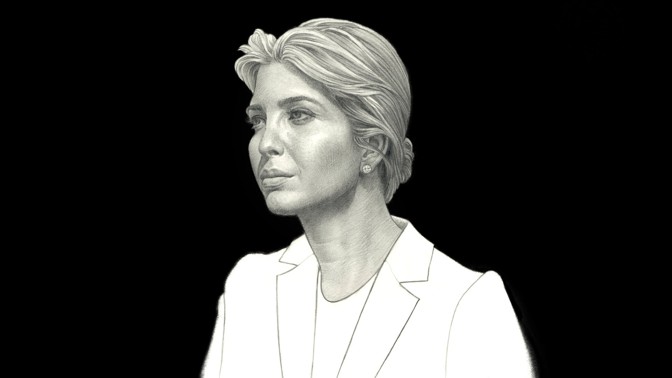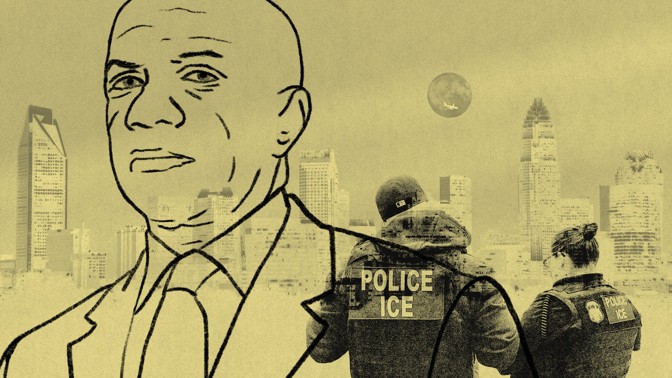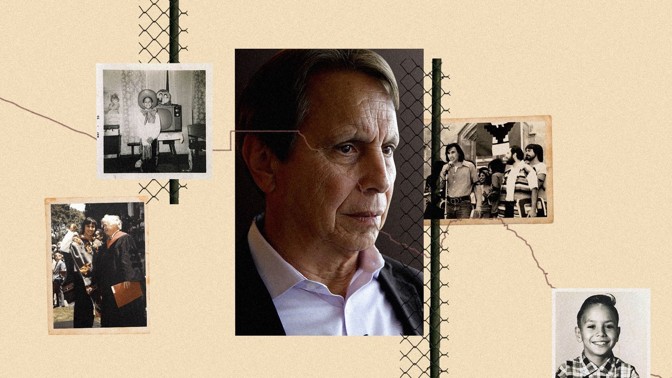It’s Monday, December 23. In today’s newsletter: Our best political profiles of the year. We’ll be back tomorrow with more stories worth revisiting.
*
« TODAY IN POLITICS »
American politics can feel impersonal: Dominated by Washington-based institutions, run by, it can seem at times, flattened caricatures of well-known people. The wizened congressperson. The buttoned-up first daughter. The at-first reluctant force behind the House’s impeachment of President Donald Trump.
But their quietest accomplishments, their private insecurities, and the lesser-told details of their biographies help paint richer portraits of a politician, a person. Here are some of The Atlantic’s most memorable profiles from 2019—you’ll recognize in nearly all of them household names, but you’ll likely find in each story something you didn’t know about the subject.

1. Joe Biden: Is the former vice president fighting a lingering stutter? How should we understand Biden’s many public gaffes? My colleague John Hendrickson landed one of the few in-depth interviews that Biden has done this year as part of this highly personal, deeply moving profile of the 2020 frontrunner. If you haven’t already, you’ll want to set some time aside to process the stunning exchanges John and Biden have in this story.
2. Nancy Pelosi: The House Speaker oversaw the formal impeachment of Donald Trump. But she had long warned against getting roped up in the type of no-win, partisan impeachment, which is where she landed. Weeks before the official House vote on December 18, Todd Purdum took a look at what Pelosi might have been thinking about how the process unfolded.
3. Elijah Cummings: The veteran Democratic congressman, the chairman of the House Oversight Committee who passed away earlier this year, wasn’t the partisan warrior that media reports often made him out to be. Russell Berman tells the story of how in Washington, “appearances deceive, and public performances and private relationships often diverge.” In Cummings’s case, he’d once even humbled Trump.

4. Ivanka Trump: Can the first daughter (but not only daughter) of the president maintain her perfectly manicured image while remaining one of her father’s closest advisers? Ivanka Trump declined to talk to our reporter for this story. Her father did participate.
5. Mitt Romney: With the Senate gearing up for an impeachment trial in January, keep an eye on Mitt Romney, the 2012-presidential-candidate-turned-Utah senator who has refashioned himself into something of a Trump dissident. Somewhat. Our McKay Coppins has covered Romney for nine years: “I’ve never seen him quite so liberated,” he writes of the Romney he interviewed this fall.

6. Kamala Harris: The California senator was a political rockstar poised to become a 2020 heavyweight. And for a time, she seemed to shine in the Democratic race. But she didn’t even make it to the Iowa caucuses, choosing to drop out in early December as her torn staff engaged in an epic level of backstabbing and mudslinging. Now the questions start: Will she endorse someone else? Will she be a viable option as someone’s VP?
7. Marianne Williamson: It was a year of many surprisingly resilient candidates out of left field, each pitching their own case against Trump. The quirky self-help author is almost certainly not going to be the next president of the United States (we’ll never promise complete certainty). But she’s certainly one of the most unusual of her 14 other Democratic competitors. My colleague Elaine Godfrey followed her around at the Iowa State Fair, and took in her … aura.

8. Garry McFadden: Quick, think of a sheriff: Maybe you’re picturing the likes of David Clarke, the controversial former Milwaukee county sheriff who rose to national prominence for his outspoken support of Donald Trump during the 2016 campaign.
Garry McFadden, the county sheriff in Charlotte, North Carolina, is precisely not that: He’s a black reformer, elected last November, who has defied ICE, much to the chagrin of his state’s Republican legislature. Where local politics meets national politics, sparks fly.
9. Eric Lidji: The Tree of Life Synagogue massacre, which left 11 Jews dead in Pittsburgh, was the deadliest attack on American Jews in modern history. And now it risks becoming just another entry on a long list of mass shootings in America. My colleague Emma Green sat with Lidji, an archivist in the city on a mission to preserve the community’s response to the shooting. This work is at times breathtakingly painful.

10. Juan Sanchez: Sanchez is the founder of Southwest Key, the largest network of shelters in America for detained migrant children (he has since left the company he built from nothing).
His Walmart facility had become a symbol of Trump’s industrial-scale separation policy, and he’d weathered months of criticism: that he was complicit in the destruction of migrant families, that his $1.5 million salary was unseemly for the operator of a charity, and that he’d failed to prevent sexual abuse in his shelters as Southwest Key grew into a massive operation. All along, however, Sanchez maintained that he didn’t change—the political climate did.
Jeremy Raff reported this complicated story from Austin.
*
Today’s newsletter was written by Saahil Desai, an associate editor on our Politics team, and edited by Shan Wang, who oversees newsletters. You can reply directly to this newsletter with questions or comments, or send a note to politicsdaily@theatlantic.com.
Your support makes our journalism possible. Subscribe here.
from The Atlantic https://ift.tt/35Y076c







0 comments:
Post a Comment